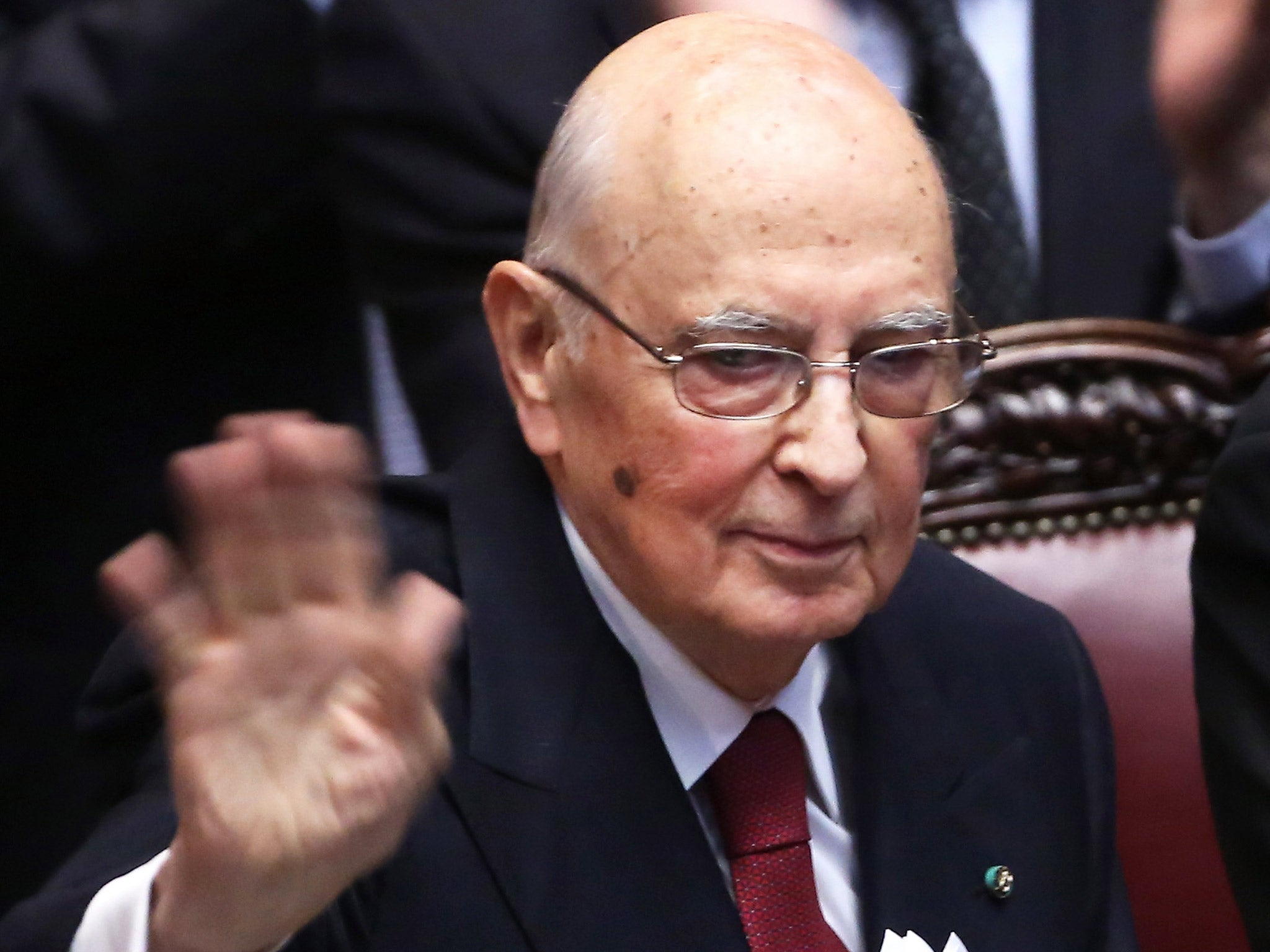Giorgio Napolitano resigns: Italian politics bids farewell to the President who gave Silvio Berlusconi the boot
The 89-year-old's departure poses a headache for beleaguered PM Matteo Renzi

President Giorgio Napolitano, Italy’s king-maker and its longest serving head of state, is set to resign on Wednesday in a development that will spell yet more political uncertainty for a fragile coalition government struggling to put the country’s moribund economy back on course.
The significance of Mr Napolitano’s departure can be measured by the fact that he has appointed the past three premiers and that the 89-year-old head of state was widely credited with behind-the-scenes manoeuvres that finally removed Silvio Berlusconi from power, at the height of the sovereign debt crisis in 2011. He then slotted the economist Mario Monti into the Prime Minister’s office, and when Monti’s time was up in 2013 and Italy failed to elected a majority government, he picked Enrico Letta and then Matteo Renzi as successive Prime Ministers.
After Mr Napolitano’s resignation, two weeks’ of meetings in smoked-filled rooms are expected to take place before the Italian parliament is obliged to begin elections to name his successor, in a process not unlike the papal conclave that elects a new pope. Mr Renzi said that he hopes the new President will be named by the fourth voting session on 1 February. Pietro Grasso, an anti-mafia prosecutor and the president of the Italian senate, will be acting President until a successor is appointed.
Political pundits said the choice of Mr Napolitano’s replacement had a lot riding on it. Professor Roberto D’Alimonte of Rome’s LUISS university, who is seen as close to Mr Renzi, said: “The choice of the new President will be a very, very important one. In uncertain times, as we’ve seen with Napolitano, the role of President of the republic assumes very great importance.”
Prof D’Alimonte noted that with another fragile coalition currently in power, the new head of state might be required to invoke one of his or her greatest constitutional powers – that is, deciding when to dissolve the current parliament, which in theory could last until 2018.
Alberto Martinelli of Milan University said that with the tendency of the President’s role to expand as a counterweight to weak government, it was vital for the new head of state to have the “right constitutional knowledge and political skills”.
The choice of Mr Napolitano’s successor will be complicated by the current pact between Mr Renzi and disgraced ex-premier and centre-right leader Mr Berlusconi on electoral reform. Pundits speculate that in return for maintaining his end of the bargain, Mr Berlusconi will have blackballed one leading centre-left candidate for the presidency, the mogul’s nemesis Romano Prodi. In return, Mr Renzi may get Mr Berlusconi’s approval for a moderate centre-left figure such as Dario Franceschini, the current Culture Minister.
Mr Napolitano said that he was happy to be returning home. “Of course I’m happy,” he responded to a question from a child at a police event at the presidential Quirinale palace in Rome. “I’m fine here, everything is beautiful, but it’s a bit of a prison. I’ll feel good at home.”
Mr Napolitano, 89, became head of state in 2006. Controversially, claims emerged that in 2011 he helped speed Mr Berlusconi’s exit from the Prime Minister’s office. Mr Berlusconi and his Forza Italia party reacted with fury to the revelations. But Mr Napolitano played down the extent of his involvement in events, and many Italians said by that ensuring that Berlusconi and Italy didn’t drag the euro off the edge of a cliff, Mr Napolitano’s ends had justified the means.
Join our commenting forum
Join thought-provoking conversations, follow other Independent readers and see their replies
Comments
Bookmark popover
Removed from bookmarks